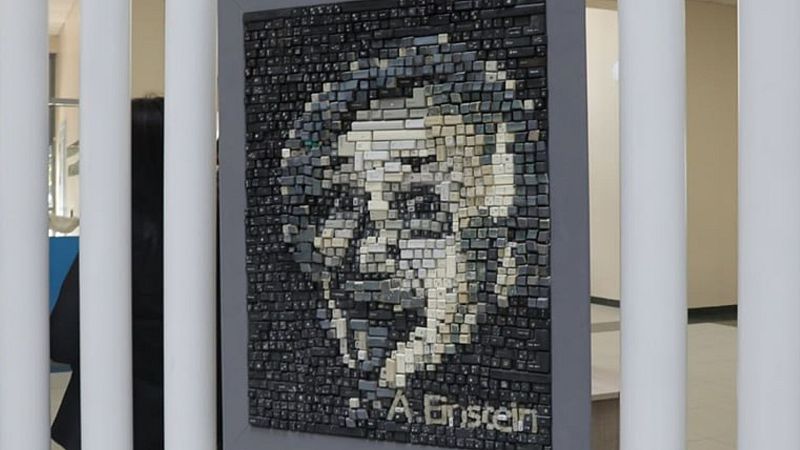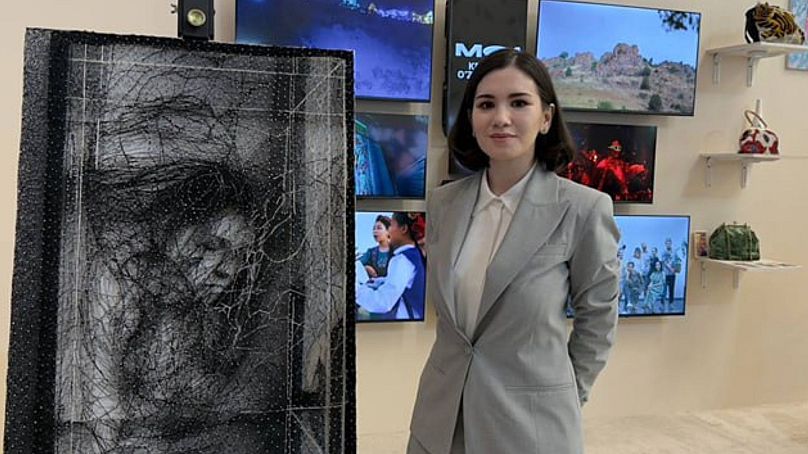
In Uzbekistan, where over 60 per cent of the population is under 30, Youth Day has emerged as a national mirror reflecting creativity, technical ambition, and policy shifts that are reshaping the country from the ground up.
This year’s Youth Day gathering at the International Congress Centre in Tashkent wasn’t just about speeches and ceremonies. It became a stage for real people with real impact, from artists and coders to inventors and educators.
In a world where innovation often starts in glossy labs or global tech hubs, Elmurod Polvonov is proving that change can begin in a workshop in Tashkent with cables, sensors, and a bold vision for the future of engineering education. As the head of the Innovation Centre at Tashkent Chemical International University, Polvonov is leading a quiet but powerful revolution by training Uzbekistan’s next generation of engineers.
Raised around machines and factories, his fascination with technology began not in theory but in practice. “Since my youth, I’ve been drawn to mechanics,” he said.
“Being around real equipment made me want to understand how things worked not just on paper, but with my hands”.
That hands-on philosophy is now the cornerstone of his work. At the centre of Polvonov’s impact is the locally developed Industry 4.0 training stand, the first of its kind in Uzbekistan. Globally, similar industrial simulation systems are typically imported from companies like Germany’s Festo, often priced over $1 million (€850,000). Polvonov and his team built their own version five to seven times cheaper, while preserving all the core features.

The stand simulates a real smart factory and integrates mechatronics and electronics, pneumatic sensor systems, and robotics programming. “Students can model, design, code, and assemble: all in one system,” Polvonov explained. “It mirrors what actually happens on the production floor in companies like Artel”.
Unlike many theoretical labs, this stand walks students through the entire chain: from concept to execution. They start with designing simple movements, such as how a bus door opens and closes, and progress to fully automated systems.
By graduation, they’ve already handled tools and processes that companies actively use. That realism has already paid off. Graduates from his programme are now employed at top local and international companies such as Technopark, Solar Nature, and Hyundai Elevator.“Some employers tell us: your students already know how to operate the systems we use. That’s the biggest compliment”.
Polvonov knows that the impact of innovation multiplies when it reaches the classroom. That’s why his centre also runs training for educators, not just students.
“Many technical teachers have never seen a smart factory. If they’ve never touched a robotic arm or assembled a panel, how can they teach it?”
To solve this, he launched an educational track where instructors gain 60-70 per cent practical familiarity with industrial systems. These teachers then carry new skills and methods back to regional colleges and vocational schools, creating ripple effects nationwide.
Introducing art engineering
Everyone knows engineering as something very difficult. It’s all about cables, physics, and calculations. But no one talks about art engineering, where creativity meets code, and beauty meets function. That’s exactly the space Polvonov and his team are now exploring.
Students are invited to build emotionally expressive works using technical tools, such as a three-dimensional portrait of Einstein made entirely from discarded keyboard keys.
“When students create something visual and emotional using engineering tools, they begin to see themselves not just as technicians, but as inventors,” he said.
The Art Engineering School now hosts monthly showcases and aims to expand across the country. Its goal is to make engineering feel approachable, inclusive, and relevant, especially for students who might not see themselves in a traditional lab.
Coding's future: From Excel to AI
Another standout figure from Youth Day is Akbar Turdiboyev, widely known in Uzbekistan as the “Excel Guy”. What started as a personal passion for spreadsheets turned into a nationwide community of over 200,000 followers and now, a tech start-up building AI-powered tools for Google Sheets.
“We didn’t chase medals,” Turdiboyev said. “We just solved real problems. And the country noticed”.
In 2021, he launched his first online learning course. The product didn’t take off immediately. But instead of quitting, he pivoted, rethinking his model, gaining followers through viral short videos, and building simple, functional tools that small businesses need.
Within two years, he hit 100,000 users and now operates a growing platform that merges infobusiness and innovation, offering Excel templates, custom-built automations, and microlearning courses.
Turdiboyev’s start-up has received government-backed support and mentorship, but his strategy remains user-driven. “Our goal is not just to teach Excel or AI,” he explained, “but to show that digital skills can build real careers, even from home”.
The artist who hammers threads into portraits
One of the most captivating voices of the day was Aziza Pulatova, a string artist and co-founder of the M.O.C. creative collective. She creates large-scale portraits from thousands of nails and threads: works that are both deeply technical and highly emotional. She is also the founder and producer of a creative agency focusing on commercial video and documentary film production.
What began as a DIY experiment has grown into a nationwide creative movement. With her team, Pulatova has organised over 50 cultural festivals in cities such as Tashkent and remote Muynak, and is now launching creative education programmes for children in underserved regions.

“We don’t just organise festivals,” she said. “We build moments where creativity, community, and meaning converge”.
M.O.C. also works to provide financial sustainability for young artists, making sure art isn’t reduced to a passion project but becomes a viable career path. “We want young people to see that they can live creatively, meaningfully, and professionally,” Pulatova added.
$145 million for young start-ups
Uzbekistan now ranks among the fastest climbers on the Youth Development Index, and is one of the top 10 countries implementing the UN Youth 2030 Strategy.
The government has invested $145 million (€125 million) in youth start-ups, with a goal to scale it to $1 billion. The government has also introduced grants and prototype funding via the Youth Venture Fund, created 9,000 youth leadership positions in districts across the country, launched the One Million AI Leaders programme in partnership with the UAE, ensured 30 Uzbeks are studying at the top 10 global universities, with another 1,500 students in the top 300.
As a symbolic milestone, Tashkent was named the Youth Capital of the Commonwealth of Independent States, while Bukhara earned the title Youth Capital of the Turkic World.
Addressing the young attendees, President of Uzbekistan Shavkat Mirziyoyev emphasised a long-term vision.
“Every success of our youth multiplies our power. You are the golden generation that will create a new history, the creators of the New Uzbekistan,” he said.







